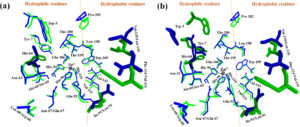INSPIRATION
Products made from non-renewable resources largely
contribute to environmental pollution and reach the end of
their lifecycle very quickly. Therefore, companies are producing new bio-based materials obtained from renewable resources, making it an important circular economy trend.
Bio-based materials are generally compostable, as well as are also easier to recycle, helping companies and consumers reduce their carbon footprints. They find applications in packaging, construction, healthcare, and automotive sectors. For the packaging industry, startups are developing sustainable
packaging solutions such as compostable packaging and edible cutlery. Additionally, to reduce the usage of fossil-based plastic, there is a shift towards bioplastics and other materials derived from biomass sources like wood chips, sawdust, recycled food waste, and fungi.
British startup Teysha Technologies offers a natural product polycarbonate platform that creates a wide range of sustainable polymers with tunable properties. The platform utilizes hydrolytic breakdown to produce polymer materials from renewable resources. The startup utilizes various co-monomers, solvents, and additives to modify the properties of the final polymer network. It creates a variety of final
products that vary from hard and stiff materials to soft, which are directly applied to plant machinery.
MOGU is an Italian startup that offers mycelium-based materials for interior design. The startup grows strains of mycelium on pre-engineered substrates from agro-industrial residues. By tuning the matrix configuration, it harvests different materials for use in wall panels and floor tiles. Fungal mycelium acts as a reinforcement to the matrix structure, creating a plastic-free and coherent material composite. At the
end of production, an inertization process slowly dries mycelium materials to reduce energy consumption.




